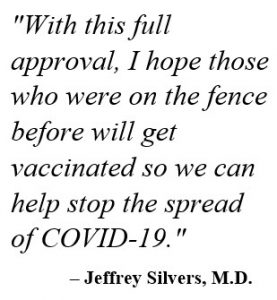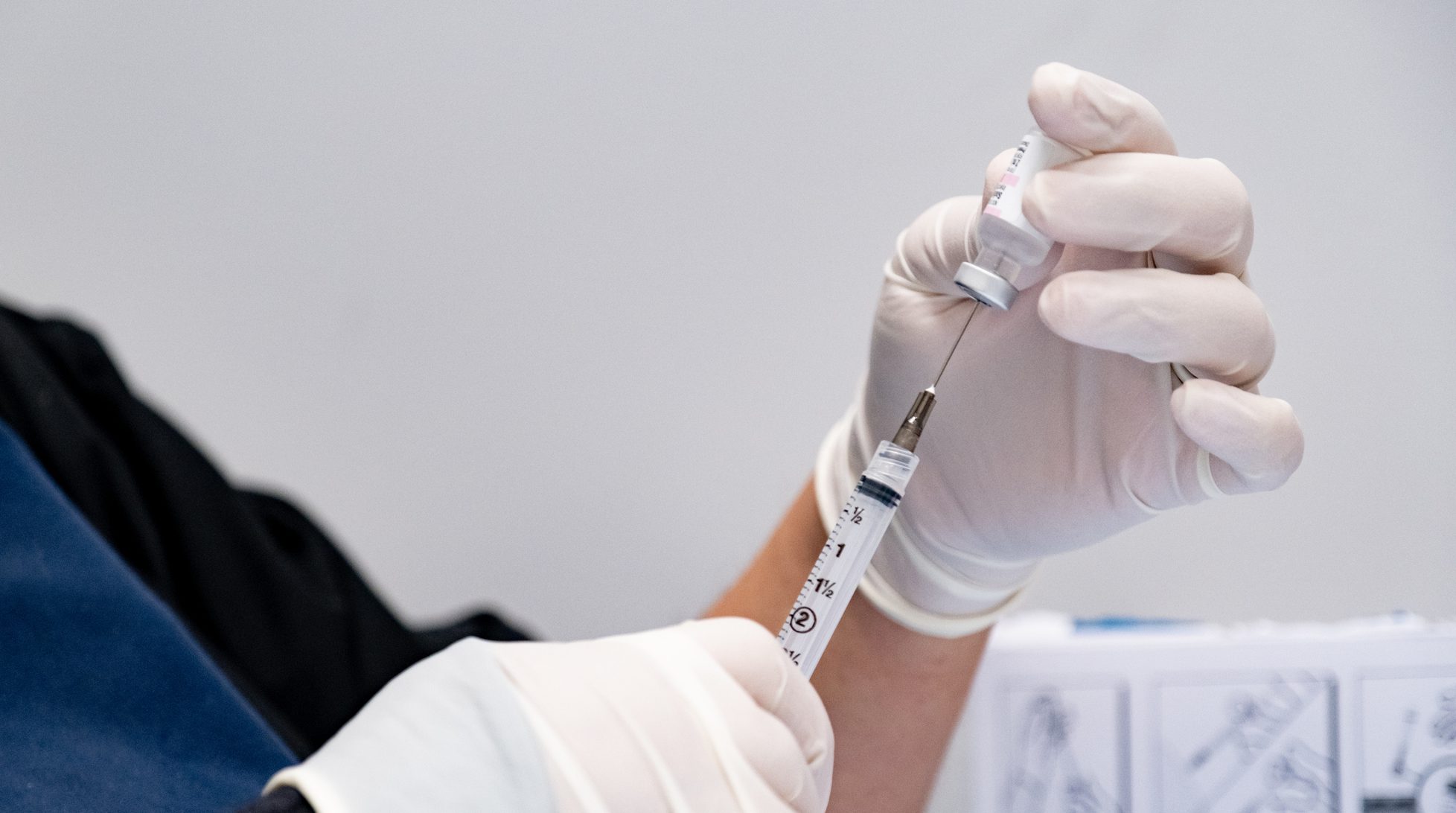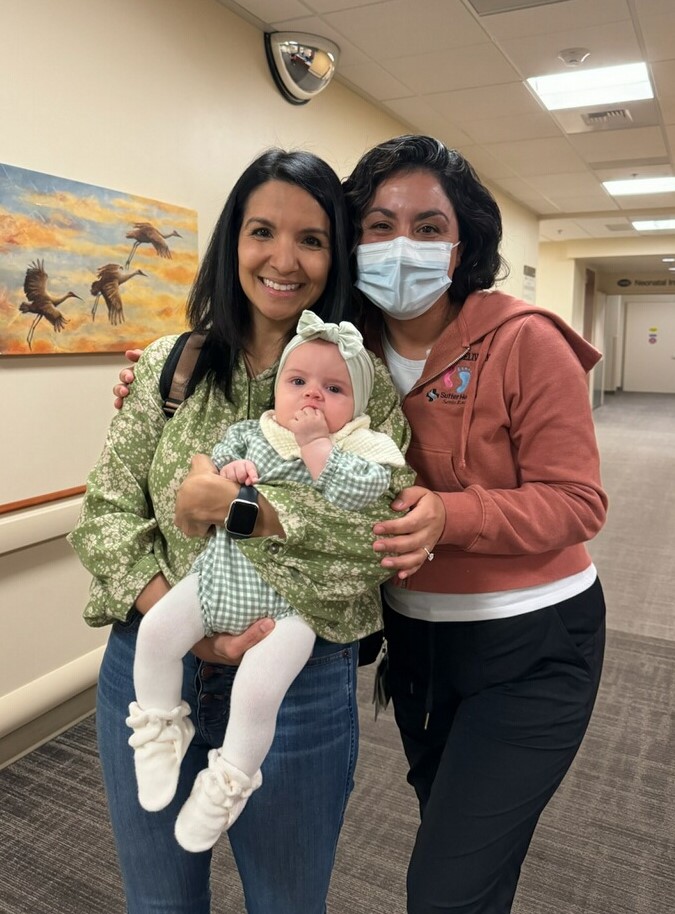As the COVID-19 pandemic continues to persist worldwide, few defenses to stop its spread have been as effective as vaccines to help prevent the disease.
In a historic moment toward stopping the spread of COVID-19, the U.S. Food and Drug Administration today approved the vaccine manufactured by Pfizer-BioNTech, which was granted emergency use authorization in the United States in December. The Pfizer vaccine will now be marketed as Comirnaty for the prevention of COVID-19 in individuals 16 years and older.
“Those individuals who were hesitant because the vaccines weren’t fully approved by the FDA now can be assured of the safety of the Pfizer vaccine,” said Jeffrey Silvers, M.D., medical director of infectious diseases at Sutter Health. “With this full approval, I hope those who were on the fence before will get vaccinated so we can help stop the spread of COVID-19.”
 The vaccine continues to be available under the emergency use authorization, including for adolescents 12-15 years old and for the administration of a third dose in certain immunocompromised individuals. Two other vaccines – one from Moderna and another from Johnson & Johnson – are also still available through the emergency use authorization for adults.
The vaccine continues to be available under the emergency use authorization, including for adolescents 12-15 years old and for the administration of a third dose in certain immunocompromised individuals. Two other vaccines – one from Moderna and another from Johnson & Johnson – are also still available through the emergency use authorization for adults.
Comirnaty contains messenger RNA (mRNA), a kind of genetic material. The mRNA vaccines use one or more of the COVID-19 virus’ genes to provoke an immune response. COVID-19 vaccines that use mRNA work with the body’s natural defenses to develop protection (or, immunity) from the virus. The mRNA from a COVID-19 vaccine does not enter the nucleus of a vaccine recipient’s cell, which is where human DNA is stored. This means the mRNA does not affect, alter or interact with our DNA in any way. (Learn more about the science of COVID-19 vaccines.)
To receive FDA approval, a vaccine manufacturer must provide data from preclinical studies through Phase 3 clinical trials (randomized, controlled, blinded clinical trials of thousands of individuals) showing the vaccine has met the safety, efficacy and manufacturing quality standards set by the FDA. For all vaccines, the FDA evaluates data and information included in the manufacturer’s submission of a biologics license application.
In the FDA’s review for approval of Comirnaty, the agency analyzed effectiveness data from approximately 20,000 vaccine and 20,000 placebo recipients ages 16 and older who had no evidence of the COVID-19 virus infection within a week of receiving the second dose. The safety of Comirnaty was evaluated in approximately 22,000 people who received the vaccine and 22,000 people who received a placebo 16 years of age and older. Based on results from the clinical trial, the vaccine was 91% effective in preventing COVID-19 disease, according to the FDA.
More than half of the clinical trial participants were followed for safety outcomes for at least four months after the second dose. Overall, approximately 12,000 recipients have been followed for at least six months. The most commonly reported side effects by those clinical trial participants who received Comirnaty were pain, redness and swelling at the injection site, fatigue, headache, muscle or joint pain, chills and fever. The vaccine is effective in preventing COVID-19 and potentially serious outcomes, including hospitalization and death, the FDA reported. Federal health agencies will continue to monitor the vaccine’s safety.
Full approval of Comirnaty follows last week’s announcement by the federal government that it plans to offer booster doses to vaccinated adults starting next month, pending approval by the FDA and recommendations from the U.S. Centers for Disease Control and Prevention.
Does the Pfizer approval change anything/do I need to have an FDA-approved vaccine?
This doesn’t change any of the state or Sutter vaccination requirements, and other vaccines currently authorized for emergency use by the FDA or WHO are still accepted.
Learn more about the phases of vaccine testing, review and approval by the FDA.





